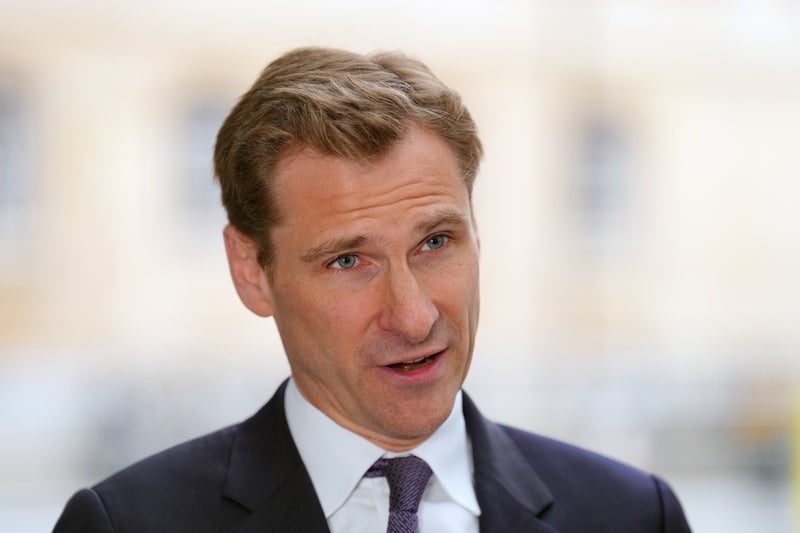Calling people ‘workshy’ has become yet another meaningless dogwhistle
Calling people ‘workshy’ has become yet another meaningless dogwhistle
Share:
Shadow Home Secretary Chris Philp is the latest figure to claim that the UK has a poor work ethic. Katie Rosseinsky asks why workers are being criticised for wanting a better, more balanced quality of life. Sound the “workshy” klaxon! It has been about a fortnight since the news cycle was last clogged up with patronising soundbites about how the UK is apparently not working hard enough, meaning that we were long overdue a rehash of this most irritating of debates. And lo, right on cue came the shadow home secretary Chris Philp, with his own contribution to this empty dialogue.
![[BrewDog’s James Watt is among the figures who have criticised the UK’s work ethic]](https://static.independent.co.uk/2025/01/31/14/34/PA-78758487.jpg)
Speaking to Nick Robinson on BBC Radio 4, Philp – whose most memorable contribution to public life perhaps came when he tweeted “Great to see Sterling strengthening on the back of the new UK growth plan” shortly after Liz Truss’s 2022 mini budget, only for the pound’s value to promptly take a nosedive – said he has found “that working hard brought its own reward and I’ve kept doing that ever since. It is something I would like to infuse more into our national culture as well.” He went on to argue that “we need a work ethic, we need everybody to be making a contribution”, and that “as a country, we need to up our game”.
![[Why is work-life balance being made to look like a bad thing?]](https://static.independent.co.uk/2025/01/31/14/02/work-life-balance.jpeg)
If you got a sense of déjà vu hearing those words, that’s probably because they echoed recent remarks made by BrewDog co-founder James Watt. Earlier this month, Watt (a man whose entire vibe answers the eternal question of “what would happen if a LinkedIn profile was somehow anthropomorphised in an ill-advised Frankenstein-style experiment?”) claimed that Britain is among the “least work-oriented countries in the world”.
Right now, the term “workshy” is starting to feel like a meaningless dog whistle, a way of attempting to score political points without doing anything useful or attempting to unravel a complicated picture. To borrow the LinkedIn phrase oft-used by entrepreneurial types like Watt, so-called lazy Brits have become “low hanging fruit”, an easy target. It’s well on the way to being placed in the same part of the political lexicon as “woke”, becoming a convenient catch-all phrase that can rail against a nebulously defined group of people who are apparently ruining everything. When did it become so fashionable to start negging our national work ethic?.
In the 2010s, so-called hustle culture seemed to permeate the mainstream as millennials, who’d come of age amid a global financial crisis, pulled out all the stops to climb the corporate ladder. Pushing yourself to the point of burnout and exhaustion was reframed as a badge of honour, the ultimate proof that you were, quote unquote, making it. The underlying message, too, was that however crap your role, however terrible your remuneration, however unlikely the possibility of ever getting promoted, you were somehow lucky to be there.
Within the context of our unpredictable and often hostile working world, it’s no wonder that many are putting less value on their jobs. All this was great news for the people at the top of the corporate food chain, who somehow managed to give off an air of general benevolence by dishing out free beers on a Friday, or going the way of Silicon Valley and installing table tennis tables and, shudder, ball pits in their premises. The pandemic, though, seemed to bring about a sea change in our collective attitudes to work.
Vast swathes of workers got a longed-for taste of work-life balance when they proved that they were able to competently do their jobs from home. Others saw that they’d been over-investing emotionally in businesses that would never love them back – and that would probably cut them loose at the first sign of economic turmoil. It’s also worth noting, of course, that Covid had wide-ranging impacts on the nation’s physical and mental wellbeing, and on its health service, which has inevitably shaped the workforce too.
No wonder, then, that our feelings towards the 9 to 5 shifted considerably after such a seismic event. Throw in the fact that wages have stagnated across many industries, and that many companies are rolling back the flexible working policies they put in place during lockdown (Amazon and Boots are among the high profile names that have recalled their employees to the office five days per week) and it’s hardly a huge shock that some of us are feeling disillusioned, lacking in motivation and unwilling to place work at the top of our priorities.
But as soon as we collectively realised that work won’t necessarily make you happy, this new attitude been demonised (Generation Z, for example, keep being written off as slackers, rather than being celebrated for having a much better grasp on work-life balance than their elders). Might that possibly be because it threatens the bonuses and bottom lines of the already super-wealthy?. Watt’s argument that Britain isn’t particularly “work-orientated” compared to other countries stems from a 2023 study from King’s College London. The research found that one-fifth of British participants believed that work was not important in their life, which was the highest proportion among the 24 countries surveyed. The UK was also the least likely country to say that work was either “very” or “rather” important in their life (although 73 per cent of the participants still agreed with those statements).






















